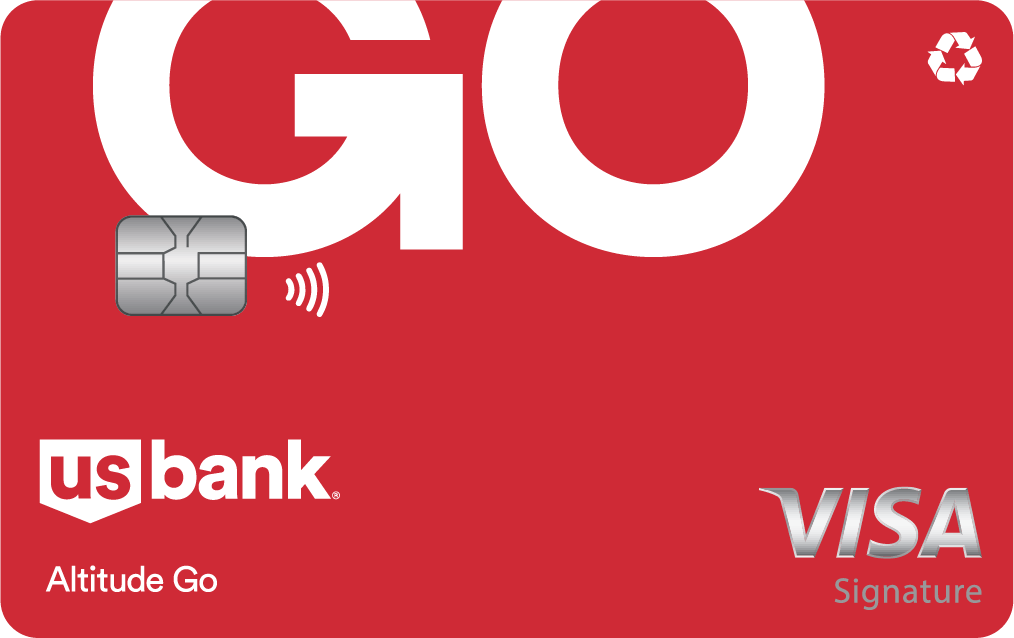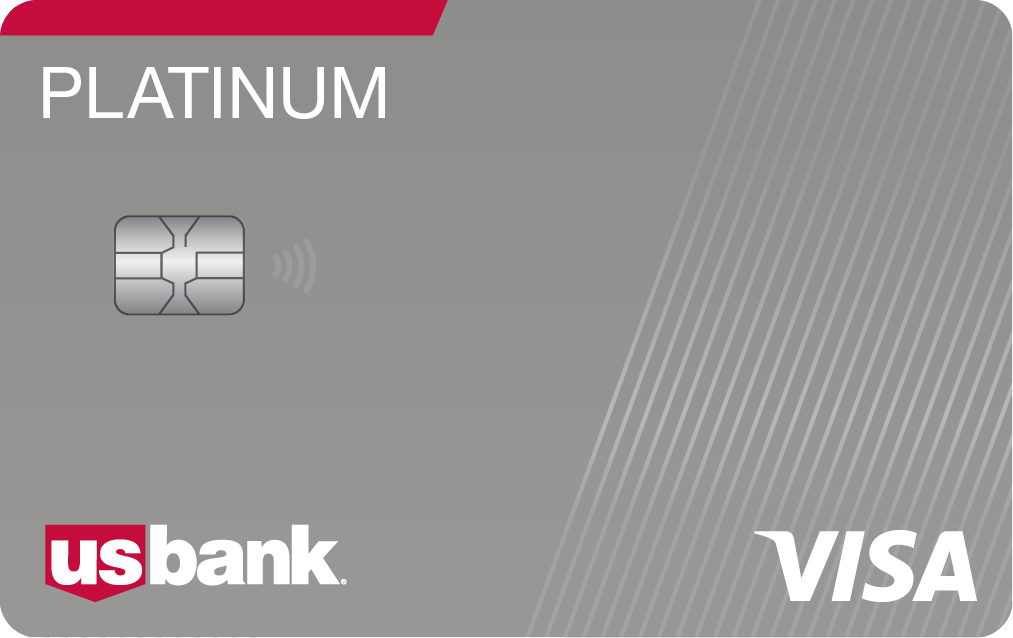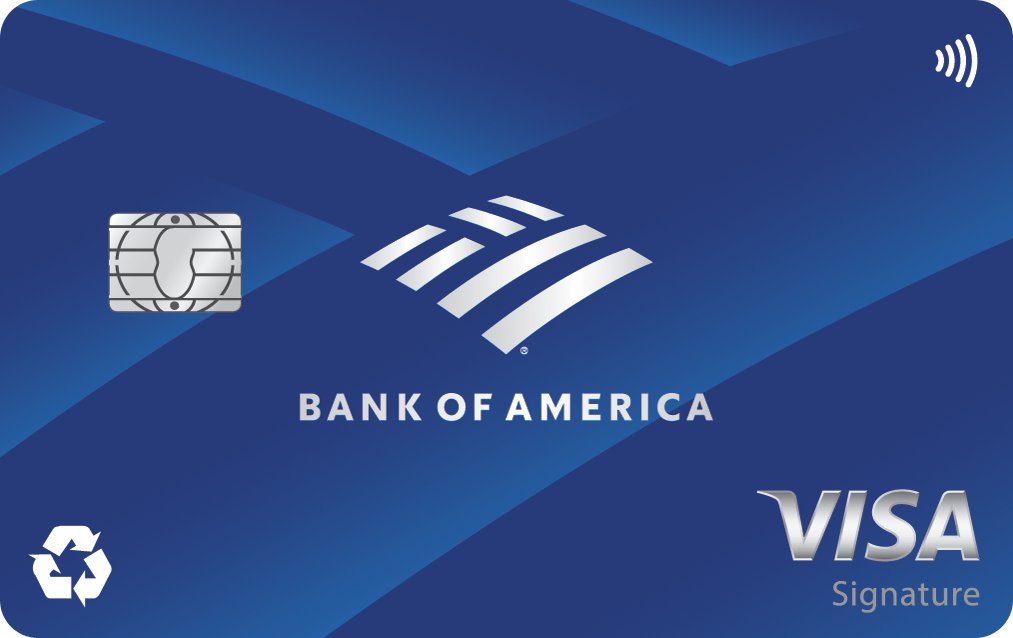These offers are no longer available on our site: U.S. Bank Altitude® Go Visa Signature® Card, U.S. Bank Visa® Platinum Card
Visa offers some of the best credit cards out there.
With 4.5 billion Visa cards worldwide and over 130 million merchant locations, Visa is a widely used and widely accepted credit card network. Whether you’re looking for a card that offers cash back, low interest or the opportunity to build credit, we’ll help you find the Visa credit card that’s right for you.
Here are our picks for the best Visa credit cards of 2026.
| Card | Best for |
|---|---|
| Chase Freedom Unlimited® | Everyday cash back |
| Wells Fargo Active Cash® Card | Simple cash back |
| U.S. Bank Altitude® Go Visa Signature® Card | No annual fee |
| Chase Sapphire Reserve® | Premium perks |
| U.S. Bank Visa® Platinum Card | Low interest |
| Costco Anywhere Visa® Card by Citi | Gas |
| Petal® 2 Visa® Credit Card | No credit |
| Bank of America® Travel Rewards credit card for Students | Students |
Best Visa credit card for everyday cash back: Chase Freedom Unlimited®
Here’s why: With the Chase Freedom Unlimited®, you’ll earn 5% cash back on travel purchases made through the Chase Travel℠ portal, 3% back at restaurants and drugstores and 1.5% on all other purchases.
To top it off, the annual fee is $0.
Check out our review of the Chase Freedom Unlimited® to learn more.
Best Visa credit card for simple cash back: Wells Fargo Active Cash® Card
Here’s why: The Wells Fargo Active Cash® Card offers a high 2% cash back on all purchases, so you won’t have to track bonus categories or spending caps.
You’ll also get a $200 cash bonus when you spend $500 in purchases in the first 3 months after your account opens.
Better yet, there’s a $0 annual fee.
For more details, read reviews of the Wells Fargo Active Cash® Card.
Best Visa credit card with no annual fee: U.S. Bank Altitude® Go Visa Signature® Card
Here’s why: For a card with no annual fee, the U.S. Bank Altitude® Go Visa Signature® Card offers a lot of rewards.
Initially, you can earn 20,000 bonus points (worth $200) after spending $1,000 on eligible purchases during the first 90 days your account is open.
You’ll also earn points for everyday spending, including …
- 4 points for every $1 you spend on dining
- 2 points per $1 on groceries at eligible locations
- 2 points per $1 at eligible gas stations and EV charging stations
- 2 points per $1 on streaming services
- 1 point per $1 on all other eligible purchases
The U.S. Bank Altitude® Go Visa Signature® Card also gives you a $15 annual streaming credit for services like Netflix, once you meet certain purchase requirements.
Check out member reviews of the U.S. Bank Altitude® Go Visa Signature® Card to learn more.
Best Visa credit card for premium perks: Chase Sapphire Reserve®
Here’s why: The Chase Sapphire Reserve® spoils you with rewards.
You’ll earn 125,000 bonus points after spending $6,000 on purchases during the first 3 months your account is open.
The points you earn from the Chase Sapphire Reserve® can be worth more than cash back when you redeem them toward travel. You have the option to redeem your points through Chase Travel. And you could get an even better value by transferring your points to one of Chase’s airline or hotel partners.
But as a premium rewards card, the Chase Sapphire Reserve® offers more than points, including …
- $300 annually in travel statement credits, which can help offset the card’s $795 annual fee.
- A statement credit of up to $120 every four years for application fees when you apply for Global Entry, NEXUS or TSA PreCheck.
- Lyft and DoorDash benefits (for a limited time).
Learn more in our review of the Chase Sapphire Reserve®.
Best Visa credit card with low interest: U.S. Bank Visa® Platinum Card
Here’s why: Whether you’re trying to get out of debt or preparing for an emergency, the U.S. Bank Visa® Platinum Card features one of the best low introductory APR offers on the market.
You’ll get a 0% intro APR on purchases and balance transfers for your first 18 billing cycles. Just keep in mind, this offer only applies to balance transfers made within the first 60 days from when your account opens. After that, you’ll be charged a variable APR of 17.74% - 28.74% for each. There’s also a balance transfer fee: An introductory fee of either 3% of the amount of each transfer or $5 minimum, whichever is greater, for balances transferred within 60 days of account opening. After that, either 5% of the amount of each transfer or $5 minimum, whichever is greater. But if you’re serious about getting out of debt, the balance transfer offer might be worth considering.
And the annual fee? $0.
See our review of the U.S. Bank Visa® Platinum Card to learn more.
Best Visa credit card for gas: Costco Anywhere Visa® Card by Citi
Here’s why: If you drive a lot and are a Costco member, the Costco Anywhere Visa® Card by Citi might be a good choice.
You’ll earn 5% cash back on gas at Costco and 4% cash back on up to $7,000 combined spend per year in eligible gas and electric vehicle charging purchases (then 1%). Best of all, this rewards rate applies not only at Costco gas stations, but also at other gas stations around the country.
Plus, the card offers even more rewards beyond gas and EV charging. You’ll also get …
- 3% back on dining and eligible travel
- 2% back on all other Costco purchases
- 1% back on all other purchases
Unfortunately, you’ll have to be a Costco member to enjoy the fruits of your labor — cash back can only be redeemed at Costco stores with an annual reward certificate. But if you’re a Costco member, there’s no annual fee for the card.
See why we like this card so much in our review of the Costco Anywhere Visa® Card by Citi.
Best Visa credit card for no credit: Petal® 2 Visa® Credit Card
Here’s why: The Petal® 2 Visa® Credit Card makes building credit fun.
There’s no annual fee or security deposit.
Instead, you’ll have the opportunity to earn rewards while you build credit. The Petal® 2 Visa® Credit Card starts you off with 1% cash back on eligible purchases, which increases to 1.25% after 6 monthly on time payments and 1.5% after another 6 monthly on time payments.
Paying on time is one of the most important things you can do to build credit. The issuer also reports your account activity to the three major credit bureaus, which is important as you’re working on your credit.
Take a look at our review of the Petal® 2 Visa® Credit Card to learn more about this refreshing approach to helping people build credit.
Best Visa credit card for students: Bank of America® Travel Rewards credit card for Students
Here’s why: The Bank of America® Travel Rewards credit card for Students gives you the opportunity to earn rewards while you learn healthy credit habits.
You’ll get a head start with 25,000 online bonus points after spending $1,000 on purchases during the first 90 days your account is open. Those bonus points can be redeemed for a $250 statement credit toward travel and dining purchases. Spending that much might sound like a lot of money, but factor in your necessary purchases (like books) to see if this sign-up bonus is attainable.
You’ll also earn 1.5 points for every $1 you spend. So if you spent $1,000 on books, you’d get $15 worth of statement credits you can redeem for travel.
Plus, there’s no annual fee.
Look at our review of the Bank of America® Travel Rewards credit card for Students to learn more.
What is a Visa credit card?
Visa is not a specific credit card, it is a credit card network that processes payments on credit cards. So Visa doesn’t issue credit cards itself. Instead, banks and other lenders — like Chase or Credit One — issue the credit cards but use the Visa payment network to process each transaction.
But Visa does have three tiers for the level of benefits you can get with a Visa card. They offer traditional Visa, Visa Signature® or Visa Infinite®.
What are Visa credit card benefits?
Visa features three different levels of benefits. The benefits you receive depend on whether your card is a traditional Visa, Visa Signature® or Visa Infinite®.
Depending on the tier of your Visa card, it might include things like …
- Lost or stolen card reporting
- Emergency card replacement
- Zero liability
- Extended warranty protection
- Return protection
- Roadside dispatch
- Auto rental collision damage waiver
- Travel and emergency assistance services
- Travel accident insurance
- Trip cancellation/trip interruption insurance
- Trip delay reimbursement
- Lost luggage reimbursement
You may be able to get other rewards or benefits with your Visa credit card based on what your issuer offers. Benefits like cash back, sign up bonuses or lounge access are dependent on the issuer and the specific credit card.
Which one is better, Visa or Mastercard?
Wondering whether it’s better to get a Visa card or Mastercard?
Visa and Mastercard are the two biggest credit card networks, and their cards are widely accepted worldwide. There aren’t many major differences between the networks for credit card users, but the main difference is the extra benefits each network provides. For example, the lowest tier Visa and Mastercard both offer zero liability protection, but Visa offers pay-per-use roadside dispatch services while Mastercard offers a transit statement credit at participating transit locations.
But if you’re looking for the best credit card, it’s less about which network you use and more about the features your issuer offers.
How do I apply for a Visa card?
To find Visa cards, visit Visa’s website. The website will have a list of some of the available Visa credit cards out there. To apply, though, you’ll need to go to the issuer’s website.
If you want to narrow the list to Visa credit cards that you’re likely to be approved for, you can sign in to Credit Karma and search Visa cards there.
How we picked these cards
To find the best Visa cards, we started by narrowing our list down to only those cards issued by Visa. That meant we had to cut out some great cards offered by American Express, Discover and Mastercard.
Then, we looked at the different types of Visa cards someone might want. For example, are you looking for a card with cash back, travel rewards, no annual fee, low interest rates, or a card that helps you build credit?
We balanced the highest rewards-earning rates with the cost of annual fees and looked for the best interest rates on the market today. We also looked for acceptance guidelines — for example, a Visa card meant for someone with limited credit may not have the highest cash back rate, but it could still be a great choice for someone with that credit profile.
*Approval Odds are not a guarantee of approval. Credit Karma determines Approval Odds by comparing your credit profile to other Credit Karma members who were approved for the card shown, or whether you meet certain criteria determined by the lender. Of course, there’s no such thing as a sure thing, but knowing your Approval Odds may help you narrow down your choices. For example, you may not be approved because you don’t meet the lender’s “ability to pay standard” after they verify your income and employment; or, you already have the maximum number of accounts with that specific lender.









